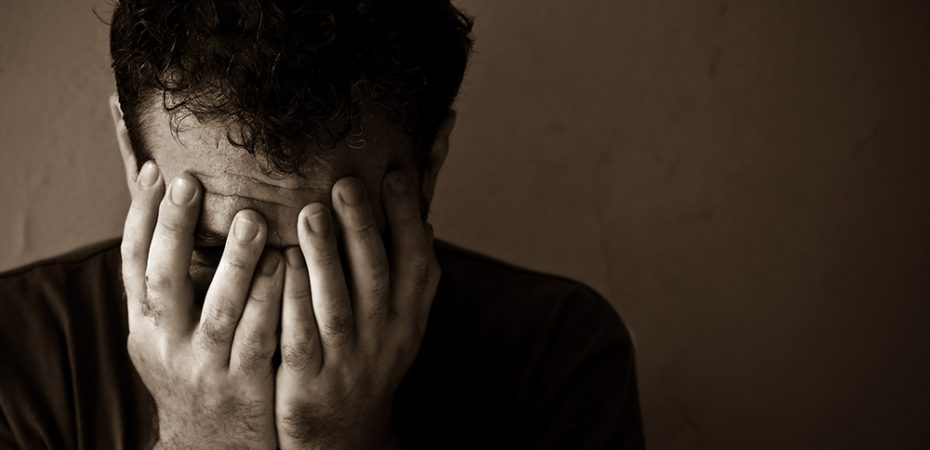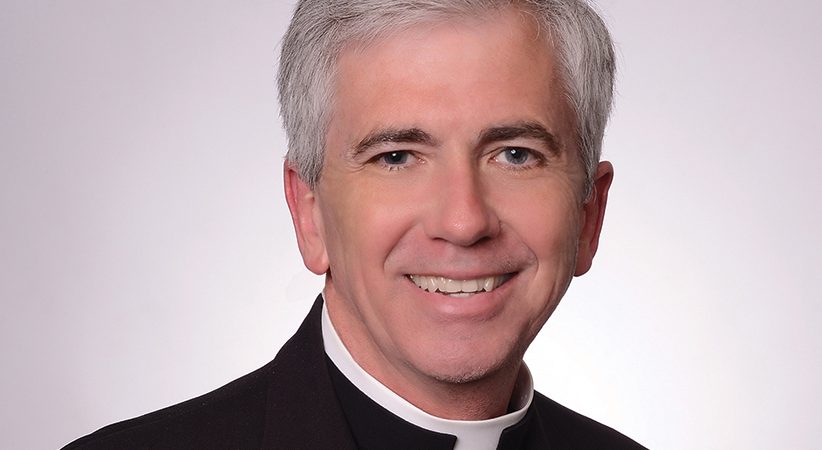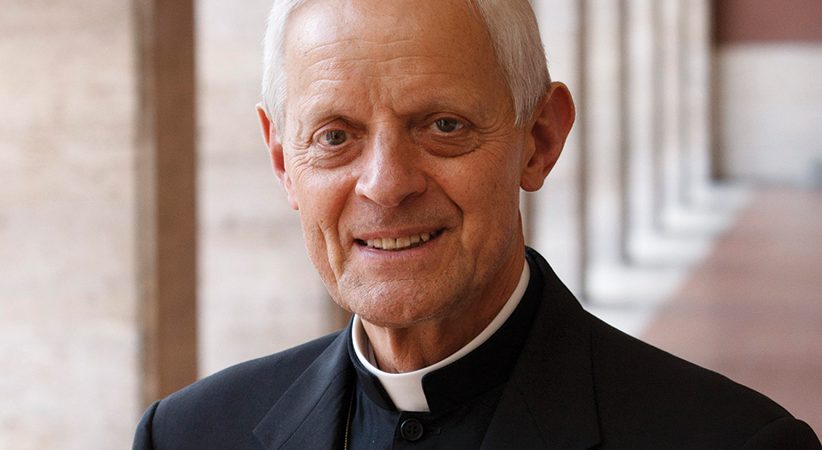The Tears of Our Grief
Prayer is the healer of fears and anxieties
Father Ronald Patrick Raab 1
 Our parish buries more than 40 people during the liturgical year. I speak during these funerals of the hidden lives of the dead and the living. I struggle to capture the meaning, for those in the pews, of a life well-lived or the deathbed regrets of the deceased the family mentions to me. Faith is often hidden among the people assembled. I preach of hope that comes from God alone.
Our parish buries more than 40 people during the liturgical year. I speak during these funerals of the hidden lives of the dead and the living. I struggle to capture the meaning, for those in the pews, of a life well-lived or the deathbed regrets of the deceased the family mentions to me. Faith is often hidden among the people assembled. I preach of hope that comes from God alone.
A couple of months ago, we buried a soldier who was in his 30s. During his funeral, the youngest daughter, 3 years old, wiped tears from her mother’s eyes with a paper towel. I saw that tender moment after receiving the Real Presence. That gesture was hidden from the assembly scattered among the pews due to social distancing. Masks that day covered abhorrent grief.
I so desire for my eyes to be wiped of tears this year. Sometimes I feel so alone among other people’s losses. I realize only God may console and heal me. This year has been especially difficult during the pandemic. The loss of jobs among our people affects every family member. Grief seems to be the real virus. Anguish spreads far and wide, and we may carry it for years. Anxiety has befriended me this year, just under the surface of my heart. Sorrow seems to stick to my ribs since the many structures of our lives have changed and some have even melted away.
As priests, we need our personal prayer to engage our grief. Grief and fear become the meat and potatoes of any priest’s prayer. I don’t know how pastors have survived this year, burying parishioners from COVID-19, especially my brothers in minority and low-income parishes. I watch as the invisible virus shows up with political colors. I witness school closings from lack of income. I feel anxious losing staff members because of cutbacks in the parish and diocese. Now is the time for priests to name our grief, to admit the knots in our stomachs, as well as the uncertainties housed in our souls, as days become short in late autumn and nights are cold.
We are keepers of ritual. We speak the truth of Jesus even when families no longer believe. We hold this mystery in our aging hearts. We straddle the tensions of changing and even competing theologies in the Church. We bend sideways in order to please people, and then so often we lose ourselves, our humanness and our genuine voices. We speak of love and hope even when destruction and fear have their day. When our parishioners are buried or reverently placed in a columbarium, I wonder how we grieve?
Grief invites us to surrender to God. We also have the option to turn to fear. When our accomplishments seem to turn to dust and our opinions don’t seem to matter anymore, where do we go for love? The only place to go is to surrender our lives to Christ Jesus, to the mystery of the divine. If we don’t pray through the treacherous paths of grief, we become hardened and insensitive. Grief destroys our spiritual lives more than anything else. We need silence instead of political argument. We need reverence, not church gossip. We need steady witness to the rhythms of our hearts, not more time in the office.
We are caretakers of Church ritual and communal prayer. However, we also need to sort through the mystery of our hidden grief and our visible anxieties. Prayer is our healer. Becoming mindful of our fleeting nature and our aging bodies in these November days becomes a balm for our hearts and priestly ministry. We may skip our silent and vigilant prayer in November, but nearly everyone will notice the grief that will be revealed in our attitudes, in our voices and in our faltering care for people.
In November, I sit in my prayer chair in the early hours, and with my imagination I place myself again in the moments that captured my heart during the year, either at deathbeds, moments during the funeral liturgies or at the gravesites. I overhear again the little girl struggling to console her mother, wiping tears away with a paper towel. I walk to gravesites of those whom I buried, or mourn friends from other states where I could not be present. I lift them up in my prayer to heavenly doors and knock ever so gently.
FATHER RONALD PATRICK RAAB, CSC, serves as pastor of Sacred Heart Parish, Colorado Springs, Colorado, Our Lady of Perpetual Help Chapel in Manitou Springs, Colorado, and Holy Rosary Chapel in Cascade, Colorado.






Comments are closed.